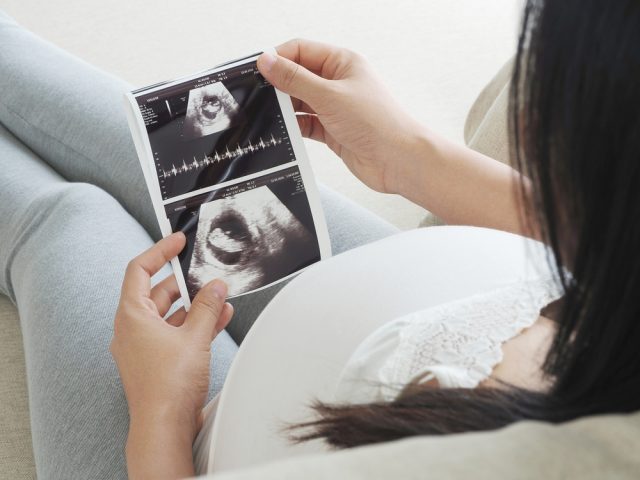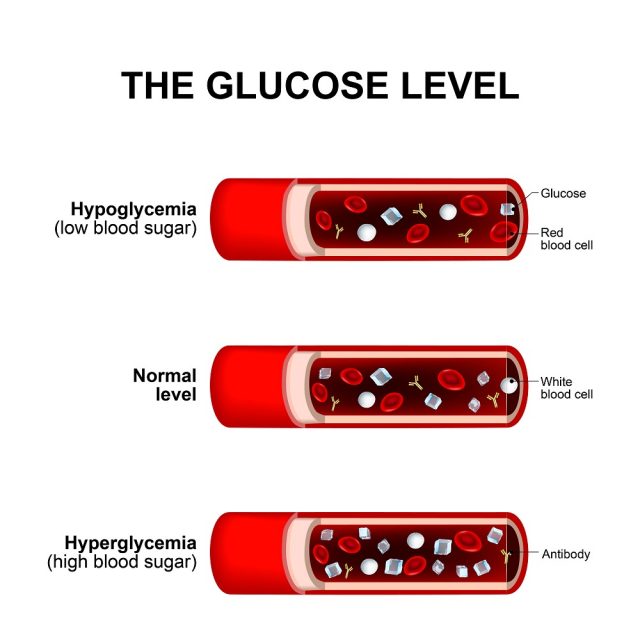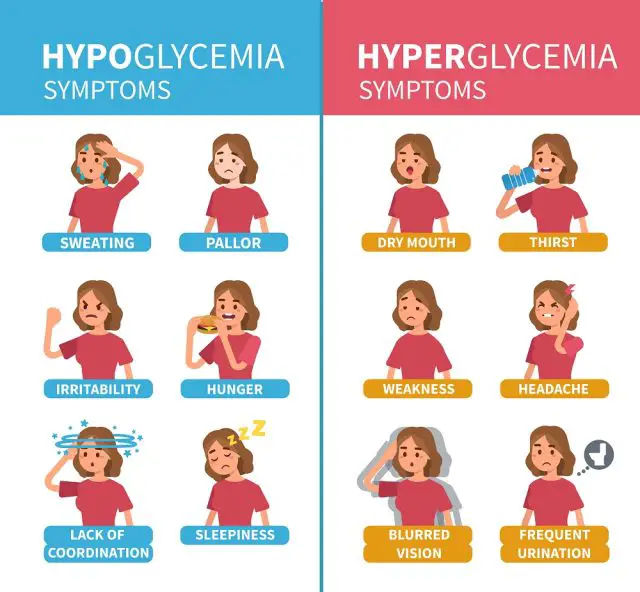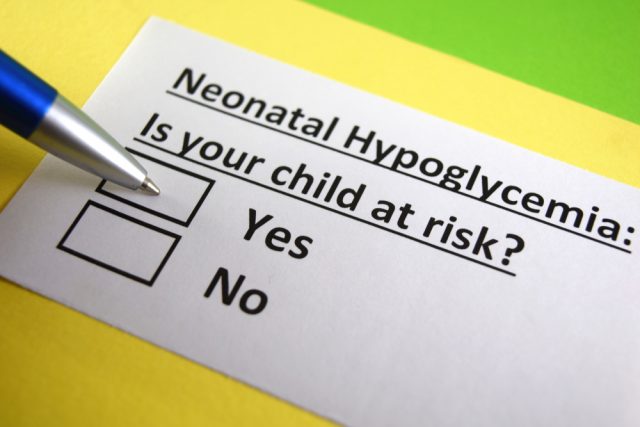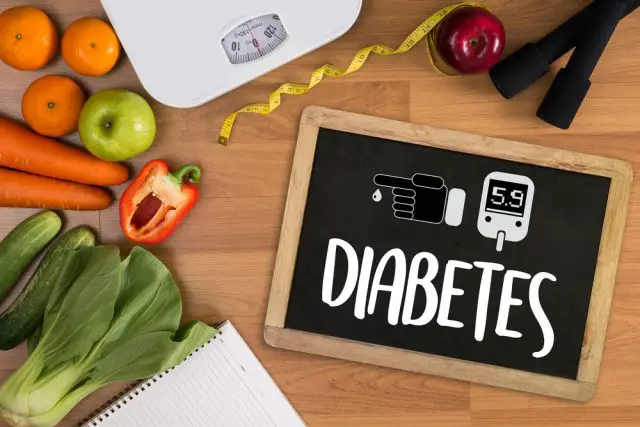Hyperglycemia in Pregnancy
One of the most commonly observed health issues in the world is an uncontrolled level of glucose in the body. The symptoms of hyperglycemia often affect people that are already suffering from diabetes and pre-diabetes. However, few other medical health conditions can also give rise to hyperglycemia such as arthritis, high cholesterol, and high blood pressure. Experts reveal that hyperglycemia does not target people who are inactive, overweight or ill rather this health issue is also common among people who follow poor diet routines and lower metabolism.
Some studies show that standard American diet that includes sugar and refined grains with a lesser amount of nutrients such as fiber and healthy fats are the main cause of increasing cases of hyperglycemia disease. In many cases, symptoms of hyperglycemia are confused with few other health issues; they include shakiness, brain fog, headaches, irritability, and sudden hunger. It is possible to manage most of these symptoms by simply improving your routine diet, managing caloric intake, following right timings for meal and exercises.
What is Hyperglycemia?
Hyperglycemia is a health condition caused by abnormal or higher blood sugar levels. It is also referred to as high glucose. Note that we gain glucose mostly from carbohydrate foods as well as from those containing rich sugar levels; it is one of the most important sources of energy for the human body.
The women that are already suffering from diabetes during pregnancy are at high risk of hyperglycemia. As per few studies carried by medical health researchers, almost 45% pregnant ladies that are suffering from type 1 or type 2 diabetes have a risk of developing hyperglycemia during 1st or 3rd trimesters.
Generally, insulin helps to control the glucose concentration in body but during pregnancy, a woman needs a higher content of insulin as placenta starts producing a higher amount of glucose. In this situation, the hormonal changes also make it difficult to regulate the glucose ratio in the body. When the body of a woman is not able to produce enough range of insulin, they suffer gestational diabetes. In this condition, ladies also develop more resistance to insulin that means body responds badly towards insulin concentration. All these factors ultimately contribute to the development of hyperglycemia that means high blood sugar levels; however, few ladies also develop hypoglycemia, low blood sugar and few may alternate between these two conditions.
Symptoms of Hyperglycemia in Pregnancy
-
Asymptomatic:
Women need routine screening for gestational diabetes during pregnancy; however, the asymptomatic condition of diabetes can often go unnoticed as it does not show any symptom on the body. Ladies that are suffering from hyperglycemia before their pregnancy will have same symptoms at the time of pregnancy as well.
-
Increased thirst:
When a pregnant woman is suffering from hyperglycemia, they usually feel thirsty so often. Even if you are continuing a good liquid diet, you will always need more of it.
-
Increase urination:
Generally, woman report increase in urination during pregnancy. However, a woman suffering from hyperglycemia not only feels the urge to urinate rather at the same time she has larger urine output as well. Such symptoms of hyperglycemia are quite difficult to recognize as they are same as normal symptoms of pregnancy.
-
Vomiting and Nausea:
There are chances of feeling vomiting and nausea due to hyperglycemia during pregnancy. Some ladies also report a loss of appetite in this cycle. The abdominal pain or cramping may be observed along with few other symptoms of high blood sugar levels. You may find it difficult to differentiate these symptoms from normal symptoms of pregnancy at least for the first trimester.
-
Weakness:
Due to a variety of changes going on in the body including hormonal imbalances, pregnant ladies may rarely realize that the increased tiredness and fatigue is due to hyperglycemia. The medical health researchers reveal that due to high blood sugar levels, a woman may feel grumpy, moody, sleepy and tired at most of the times. Some may also notice blurred vision and these symptoms generally do not improve for the whole day and may become worse after meals.
Few rare symptoms of hyperglycemia include:
- Numbness in legs, feet, and hands due to nerve damage.
- Skin issues including itchy, dry skin with slow wound healing ability, thick patches, and velvet textured skin.
- Frequent yeast infections.
- Confusion, paralysis or high fever.
During pregnancy, gestational diabetes is caused by deviated blood sugar levels. Few other complications associated with this health condition are preeclampsia, low glucose levels, high birth weight etc. In some cases, ladies may also face the critical situation of miscarriage. Babies that are born with moms suffering from such diabetic conditions may have many health complications such as type 2 diabetes, obesity, and ketoacidosis etc.
Causes and risks associated with hyperglycemia in pregnancy
Generally, problems in the pancreas or some disturbances in insulin levels can cause an unwanted rise in blood sugar levels leading to unhealthy conditions. People that are suffering from type 1 diabetes are not able to produce enough amount of insulin in their body whereas those with type 2 diabetes develop resistance towards insulin. Genetics also play an essential role in both types of diabetes; however. The family history has more impact in case of type 2 diabetes as compared to type 1. Development of type 2 diabetes is actually connected to the predisposition of certain illnesses that make person’s body susceptible to various risk factors. The common cause of it is obesity and overweight. In case if you do more smoking and do not follow appropriate routines for physical activity, there are chances of development of critical health conditions.
Gestational diabetes is generally caused by an extreme boost in glucose level during pregnancy and it happens as a result of some hormonal changes and lifestyle factors. There are chances to develop hyperglycemia during pregnancy even when you are not diabetic. Various harmonic fluctuations in the body can cause unexpected alternations in blood sugar levels and it may also release some stress hormones that are responsible for producing stress-induced hyperglycemia.
Few commonly observed risk factors associated with hyperglycemia during pregnancy are:
-
Birth defects
It is not so common to have birth defects in ladies suffering from gestational diabetes but in case if you are in trouble due to hyperglycemia or have high glucose level in your body, the chances of giving birth to a normal baby decreases. These birth defects affect fetus during the first trimester of pregnancy and it leads to the improper development of the brain, spinal cord, and heart.
-
Macrosomia:
Macrosomia is a condition that results in birth weight more than 8.8 pounds and in many cases, it happens due to high blood sugar levels in mother’s body. The disturbance in normal conditions of insulin and glucose in fetus cause macrosomia in pregnant ladies and it happens due to hyperglycemia. This condition increases the risk of shoulder dystocia that is difficulty in delivering shoulders of the baby after head. It may cause some serious injuries to arms or shoulders of the baby.
-
Neonatal Hypoglycemia:
Mothers suffering from hyperglycemia have higher levels of glucose in their blood at the time of pregnancy and it happens because of higher circulation of glucose from the placenta. At the time of birth, the body starts producing a higher level of insulin to observe the additional glucose levels but as the baby comes out of the womb, the glucose levels drop instantly, however they keep on developing higher insulin content. This process causes higher absorption of sugar from bloodstream and babies may face hypoglycemia from their hyperglycemic mothers. In such situations, the baby may have some difficulty in breathing, have problems to maintain normal body temperature and may also develop seizure or critical brain damage.
-
Stillbirth:
It is well understood as the death of the baby before delivery and it happens more with moms suffering from hyperglycemia. The higher blood sugar level damages blood vessels in placenta area so fetus receives a lesser supply of oxygen and nutrition leading to stillbirth.
Treatment of Hyperglycemia in Pregnancy
In order to treat this health condition, doctors may need to consider few essential factors such as overall health, the severity of disease, age and cognitive function as well. Some of the basic lifestyle changes that can help you to avoid troubles associated with Hyperglycemia in Pregnancy are:
- Make few dietary changes to your routines by lowering consumption of carbohydrates and improving intake of fibers that are essential in controlling blood sugar levels.
- Find more time for exercises and make efforts to lose few pounds to achieve fitness with better insulin sensitivity.
- Stop smoking as it is responsible for developing type 2 diabetes and hyperglycemia.
- Prefer to stay in touch with doctors to ensure time to time blood sugar monitoring that can help to take appropriate decisions for managing blood sugar levels to the desired
- Add apple cider vinegar to your routine diet.
If you are already suffering from diabetes and are planning to conceive, it is important to contact a trustworthy medical health expert for right guidance to avoid complications in next stage.

